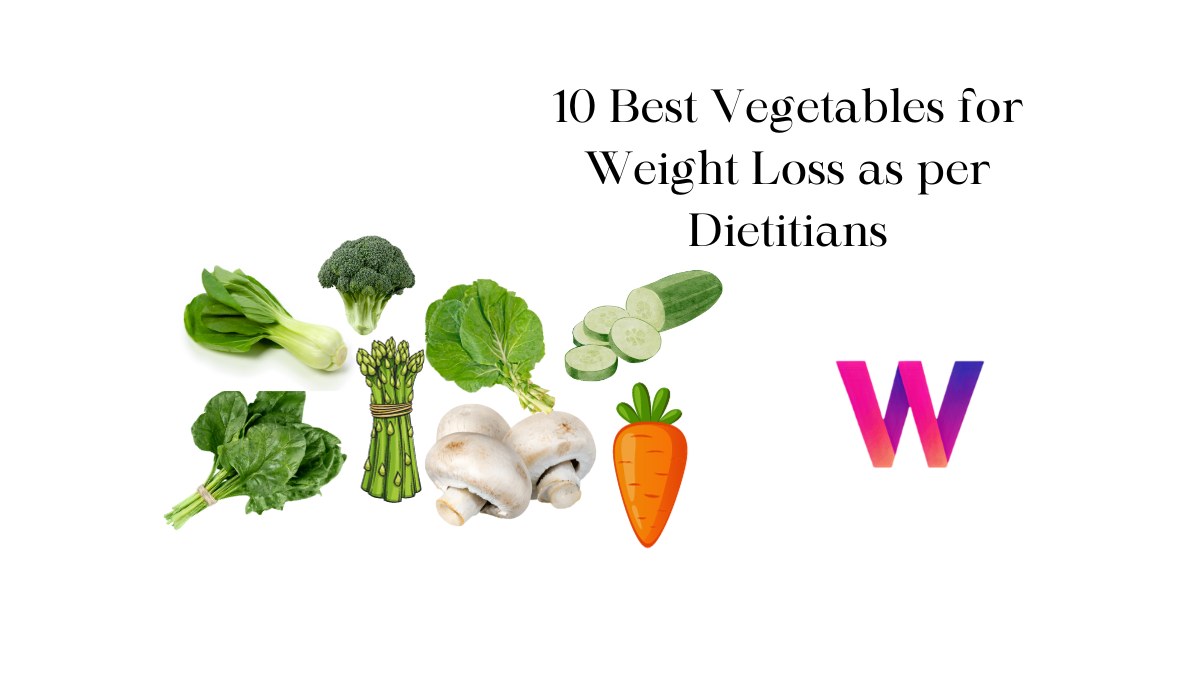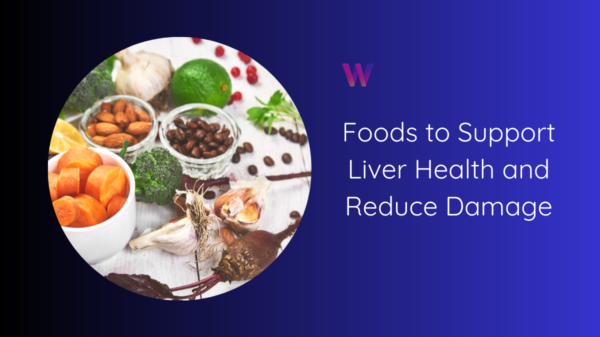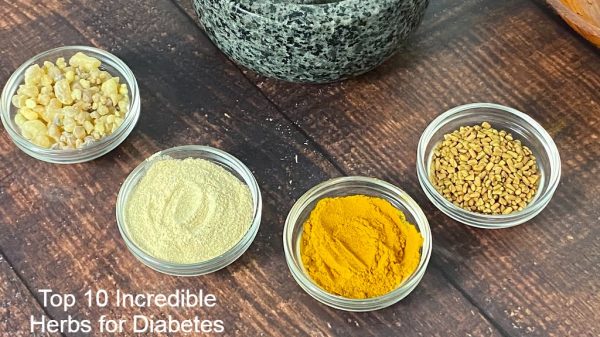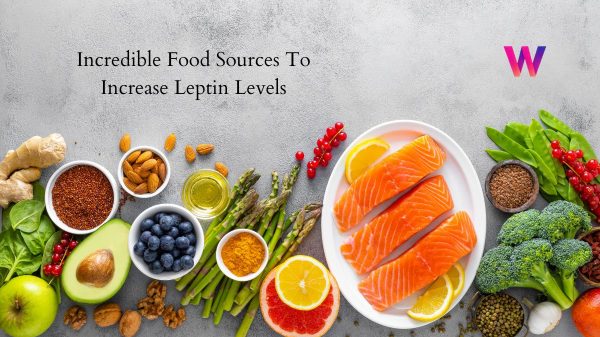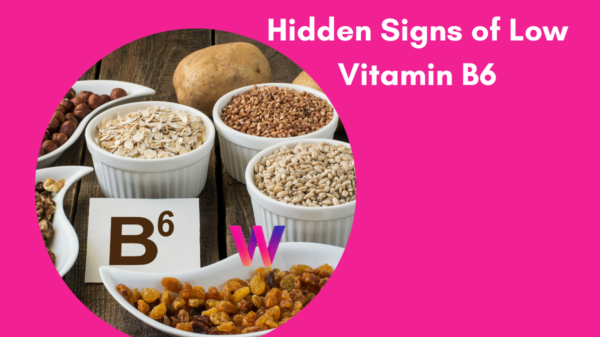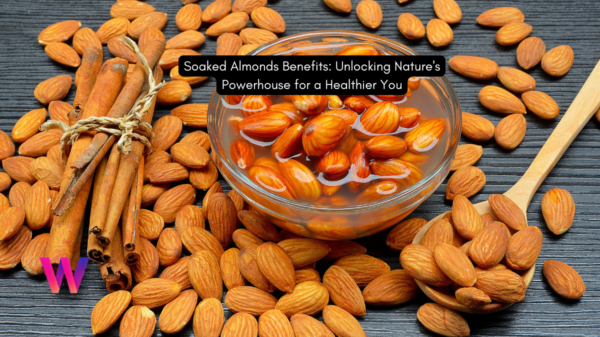Vegetables are an essential part of a healthy diet, especially if you want to lose weight. They are low in calories, high in fiber, and rich in nutrients that can boost your metabolism, reduce your appetite, and improve your overall health. But which vegetables are the best for weight loss? Here are 10 best vegetables that dietitians recommend for shedding those extra pounds.
10 Best Vegetables for Weight Loss:
1. Spinach
Spinach is a leafy green vegetable that is packed with vitamins, minerals, antioxidants, and phytochemicals. It is also one of the most nutrient-dense foods you can eat, with only 23 calories per 100 grams. Spinach can help you lose weight by:
- Increasing your satiety: Spinach contains a compound called thylakoids, which can stimulate the release of hormones that suppress hunger and increase fullness. A study found that people who consumed a spinach extract before breakfast felt more satisfied and ate less throughout the day than those who did not.
- Boosting your metabolism: Spinach is a good source of iron, which is essential for the production of hemoglobin and the transport of oxygen to your cells. Iron deficiency can impair your metabolism and energy levels, making it harder to burn calories and fat. Spinach can also provide nitrates, which can improve blood flow and oxygen delivery to your muscles, enhancing your exercise performance and calorie expenditure.
- Protecting your health: Spinach can lower your blood pressure, cholesterol, inflammation, and oxidative stress, which are all risk factors for obesity and chronic diseases . Spinach can also support your gut health by providing prebiotics, which are food for your beneficial bacteria. A healthy gut microbiome can influence your weight by regulating your appetite, metabolism, and immune system.
You can enjoy spinach raw or cooked in salads, smoothies, soups, stir-fries, omelets, and more. You can also use spinach as a base for pesto, dips, or sauces.
2. Bok Choy
Bok choy is a type of Chinese cabbage that has crunchy stems and tender leaves. It is low in calories (13 per 100 grams) but high in water (95%) and fiber (1 gram per 100 grams), which can help you stay hydrated and full. Bok choy can also help you lose weight by:
- Enhancing your fat-burning: Bok choy contains glucosinolates, which are sulfur-containing compounds that can activate enzymes involved in fat breakdown and detoxification. Glucosinolates can also modulate the expression of genes related to obesity and inflammation.
- Supporting your thyroid function: Bok choy is a good source of iodine, which is a trace mineral that is needed for the synthesis of thyroid hormones. Thyroid hormones regulate your metabolism, growth, and development. Iodine deficiency can lead to hypothyroidism, which is a condition characterized by low thyroid hormone levels and a slow metabolism.
- Providing antioxidants: Bok choy is rich in vitamin C, vitamin A, vitamin K, folate, and other antioxidants that can protect your cells from free radical damage and inflammation. Oxidative stress and inflammation can impair your metabolic function and increase your risk of obesity and diabetes .
You can eat bok choy raw or cooked in salads, slaws, soups, stir-fries, or as a side dish. You can also pickle or ferment bok choy to make kimchi or sauerkraut.
3. Asparagus
Asparagus is a spring vegetable that has green spears with purple tips. It is low in calories (20 per 100 grams) but high in fiber (2.1 grams per 100 grams), protein (2.2 grams per 100 grams), and water (93%), which can help you feel full and satisfied. Asparagus can also help you lose weight by:
- Promoting diuresis: Asparagus contains asparagine, an amino acid that can act as a natural diuretic. Diuretics increase the production and excretion of urine, which can help you flush out excess water and sodium from your body. This can reduce bloating and water retention, which can affect your weight and appearance.
- Improving insulin sensitivity: Asparagus contains chromium, a trace mineral that can enhance the action of insulin. Insulin is a hormone that regulates your blood sugar levels and glucose uptake by your cells. Insulin resistance is a condition where your cells become less responsive to insulin, resulting in high blood sugar and fat storage. Asparagus can help prevent or reverse insulin resistance by improving your glucose metabolism and reducing your risk of type 2 diabetes.
- Stimulating your digestion: Asparagus is a prebiotic food that can feed your gut bacteria and increase their diversity and activity. A healthy gut microbiome can improve your digestion, absorption, and elimination of food, as well as your immune system and mood. A balanced gut flora can also prevent or treat obesity by influencing your appetite, energy expenditure, and fat storage.
You can cook asparagus by steaming, boiling, roasting, grilling, or sautéing it. You can season it with salt, pepper, lemon juice, garlic, or herbs. You can also add it to salads, pasta, risotto, quiche, or frittata.
4. Mushrooms
Mushrooms are edible fungi that come in various shapes, sizes, colors, and flavors. They are low in calories (22 per 100 grams) but high in protein (3.1 grams per 100 grams) and fiber (2.5 grams per 100 grams), which can help you curb your hunger and cravings. Mushrooms can also help you lose weight by:
- Replacing meat: Mushrooms have a meaty texture and a savory flavor that can mimic animal products. You can use mushrooms as a plant-based alternative to meat in burgers, tacos, sandwiches, stir-fries, or casseroles. This can help you reduce your intake of calories, fat, cholesterol, and saturated fat, which are associated with weight gain and cardiovascular disease.
- Increasing your thermogenesis: Mushrooms contain ergothioneine, an antioxidant that can increase your thermogenesis. Thermogenesis is the process of heat production by your body, which can increase your energy expenditure and calorie burning. A study found that people who consumed a mushroom extract for 12 weeks had higher thermogenesis and lower body fat than those who did not.
- Boosting your immunity: Mushrooms are rich in beta-glucans, polysaccharides that can modulate your immune system and enhance your defense against infections and diseases. A strong immune system can prevent inflammation and oxidative stress, which are linked to obesity and metabolic disorders.
You can eat mushrooms raw or cooked in salads, soups, stews, omelets, pizzas, or as a snack. You can also try different types of mushrooms such as white button, portobello, shiitake, oyster, enoki, or maitake.
5. Collard Greens
Collard greens are leafy green vegetables that belong to the same family as kale and cabbage. They are low in calories (32 per 100 grams) but high in fiber (4 grams per 100 grams) and water (90%), which can help you fill up without adding too many calories to your diet. Collard greens can also help you lose weight by:
- Lowering your cholesterol: Collard greens contain glucosinolates and phytosterols, which can inhibit the absorption of cholesterol from your diet and bile acids from your liver. This can lower your blood cholesterol levels and prevent plaque formation in your arteries. High cholesterol is a risk factor for obesity and heart disease .
- Detoxifying your body: Collard greens contain chlorophyll, a pigment that gives them their green color. Chlorophyll can bind to toxins and heavy metals in your digestive tract and eliminate them from your body. This can reduce the burden on your liver and kidneys and improve their function. Toxins and heavy metals can interfere with your metabolism and hormone balance, leading to weight gain and health problems.
- Providing calcium: Collard greens are a good source of calcium, a mineral that is essential for bone health and muscle contraction. Calcium can also help you lose weight by increasing your fat oxidation and suppressing your appetite. A study found that people who consumed more calcium from dairy products or supplements lost more weight than those who consumed less calcium over a 24-week period.
6. Broccoli
Broccoli is a cruciferous vegetable that has green florets and a thick stem. It is low in calories (34 per 100 grams) but high in fiber (2.6 grams per 100 grams) and protein (2.8 grams per 100 grams), which can help you control your appetite and calorie intake. Broccoli can also help you lose weight by:
- Fighting cancer: Broccoli contains sulforaphane, a phytochemical that can activate genes that protect your cells from DNA damage and induce apoptosis, or programmed cell death, in cancer cells. Sulforaphane can also inhibit the growth and spread of tumors by blocking angiogenesis, or the formation of new blood vessels that feed cancer cells. Cancer is a chronic disease that can cause weight loss or weight gain, depending on the type and stage of the disease.
- Balancing your hormones: Broccoli contains indole-3-carbinol, a compound that can modulate the metabolism and activity of estrogen, a female sex hormone that can affect your weight and body fat distribution. Estrogen dominance, or excess estrogen relative to progesterone, can cause weight gain, bloating, mood swings, and other symptoms in women. Indole-3-carbinol can help restore hormonal balance by increasing the conversion of estrogen to its less potent forms and enhancing its elimination from the body.
- Supporting your brain function: Broccoli is a good source of choline, a nutrient that is involved in the synthesis of acetylcholine, a neurotransmitter that is essential for memory, learning, and cognition. Choline can also prevent cognitive decline and dementia by reducing homocysteine, an amino acid that can damage your brain cells and blood vessels. A healthy brain function can help you make better decisions and stick to your weight loss goals.
You can eat broccoli raw or cooked in salads, soups, stir-fries, casseroles, or as a snack. You can also blend broccoli into smoothies or juices.
7. Carrots
Carrots are root vegetables that have an orange color and a sweet flavor. They are low in calories (41 per 100 grams) but high in water (88%) and fiber (2.8 grams per 100 grams), which can help you hydrate and fill up your stomach. Carrots can also help you lose weight by:
- Improving your vision: Carrots are rich in beta-carotene, a precursor of vitamin A, which is vital for your eye health and vision. Vitamin A can prevent night blindness, dry eyes, cataracts, and macular degeneration, which are common eye problems that can affect your quality of life and ability to exercise. A good vision can also help you avoid overeating by allowing you to see the portion sizes and colors of your food.
- Reducing your blood sugar: Carrots contain polyphenols, antioxidants that can lower your blood sugar levels and improve your insulin sensitivity. High blood sugar and insulin resistance can lead to weight gain, hunger, cravings, and diabetes. Polyphenols can also protect your pancreas from oxidative stress and inflammation, which are factors that can impair its function and insulin production.
- Increasing your chewing time: Carrots have a crunchy texture that requires more chewing than other foods. Chewing can stimulate the production of saliva and gastric juices, which can aid in digestion and absorption of nutrients. Chewing can also signal your brain that you are eating and increase your satiety hormones.
You can eat carrots raw or cooked in salads, soups, stews, roasts, or as a snack. You can also juice carrots or make them into cakes or muffins.
8. Cucumber
Cucumber is a fruit that belongs to the same family as melons and squash. It has a green skin and a watery flesh with tiny seeds. It is very low in calories (15 per 100 grams) but high in water (95%) and fiber (0.5 grams per 100 grams), which can help you quench your thirst and cleanse your digestive system. Cucumber can also help you lose weight by:
- Reducing inflammation: Cucumber contains cucurbitacins, triterpenes that can inhibit the production of pro-inflammatory cytokines and enzymes in your body. Inflammation is a natural response to injury or infection, but chronic inflammation can cause weight gain, insulin resistance, and metabolic syndrome.
- Enhancing your skin health: Cucumber contains silica, a mineral that is important for the synthesis of collagen, a protein that gives your skin its elasticity and firmness. Silica can also prevent wrinkles, sagging skin, and age spots by protecting your skin from UV damage and free radicals. A healthy skin appearance can boost your self-esteem and motivation to lose weight.
- Suppressing your appetite: Cucumber contains fisetin, a flavonoid that can modulate the activity of serotonin, a neurotransmitter that regulates your mood, sleep, and appetite. Serotonin can reduce your hunger and cravings, especially for carbohydrates and sweets. Fisetin can also improve your memory and learning by enhancing your synaptic plasticity and neurogenesis.
You can eat cucumber raw or cooked in salads, sandwiches, wraps, or as a snack. You can also make cucumber into pickles, soups, or smoothies.
9. Celery
Celery is a vegetable that has green stalks and leaves. It is very low in calories (16 per 100 grams) but high in water (95%) and fiber (1.6 grams per 100 grams), which can help you flush out toxins and waste from your body. Celery can also help you lose weight by:
- Increasing your thermic effect: Celery has a high thermic effect, which means that it requires more energy to digest than it provides. This can increase your metabolic rate and calorie burning. Some people claim that celery has negative calories, which means that it burns more calories than it contains, but this is not true. However, celery can still help you create a calorie deficit by filling you up with minimal calories.
- Lowering your blood pressure: Celery contains phthalides, compounds that can relax your blood vessels and lower your blood pressure. High blood pressure is a risk factor for obesity and cardiovascular disease. Phthalides can also reduce the levels of stress hormones such as cortisol, which can cause weight gain, especially around your abdomen.
- Providing electrolytes: Celery is a good source of potassium, sodium, calcium, magnesium, and phosphorus, which are electrolytes that are essential for your fluid balance and muscle function. Electrolytes can prevent dehydration, cramps, fatigue, and headaches, which can affect your performance and recovery from exercise.
You can eat celery raw or cooked in salads, soups, stews, or as a snack. You can also juice celery or blend it into smoothies.
10. Cauliflower
Cauliflower is a cruciferous vegetable that has white florets and a thick stem. It is low in calories (25 per 100 grams) but high in fiber (2 grams per 100 grams) and protein (1.9 grams per 100 grams), which can help you regulate your digestion and blood sugar levels. Cauliflower can also help you lose weight by:
- Replacing high-carb foods: Cauliflower has a mild flavor and a versatile texture that can mimic high-carb foods such as rice, potatoes, bread, or pasta. You can use cauliflower as a low-carb alternative to these foods by grating, mashing, roasting, or baking it. This can help you reduce your intake of calories, starches, and sugars, which are linked to weight gain and diabetes.
- Boosting your immunity: Cauliflower is rich in vitamin C, vitamin B6, folate, and other antioxidants that can strengthen your immune system and protect you from infections and diseases. A strong immune system can prevent inflammation and oxidative stress, which are associated with obesity and metabolic disorders.
- Supporting your liver function: Cauliflower contains sulforaphane and indole-3-carbinol, which can enhance the detoxification and regeneration of your liver cells. Your liver is an organ that is responsible for filtering your blood and metabolizing fats, proteins, and carbohydrates. A healthy liver function can improve your fat burning and prevent fatty liver disease.
You can eat cauliflower raw or cooked in salads, soups, stir-fries, casseroles, or as a side dish. You can also make cauliflower into rice, mash, pizza crust, or bread.
Conclusion
Vegetables are not only good for your health, but also for your weight loss. They can provide you with fiber, water, protein, vitamins, minerals, antioxidants, and phytochemicals that can help you feel full, burn calories, lower your blood sugar, balance your hormones, detoxify your body, and prevent diseases. The 10 vegetables that we have listed above are some of the best ones for weight loss according to dietitians, but you can also include other vegetables in your diet such as kale, lettuce, cabbage, zucchini, eggplant, peppers, tomatoes, onions, garlic, and more. The more variety you have in your vegetable intake, the more benefits you will get. So start adding more vegetables to your meals and snacks today and see the difference in your weight and health.

